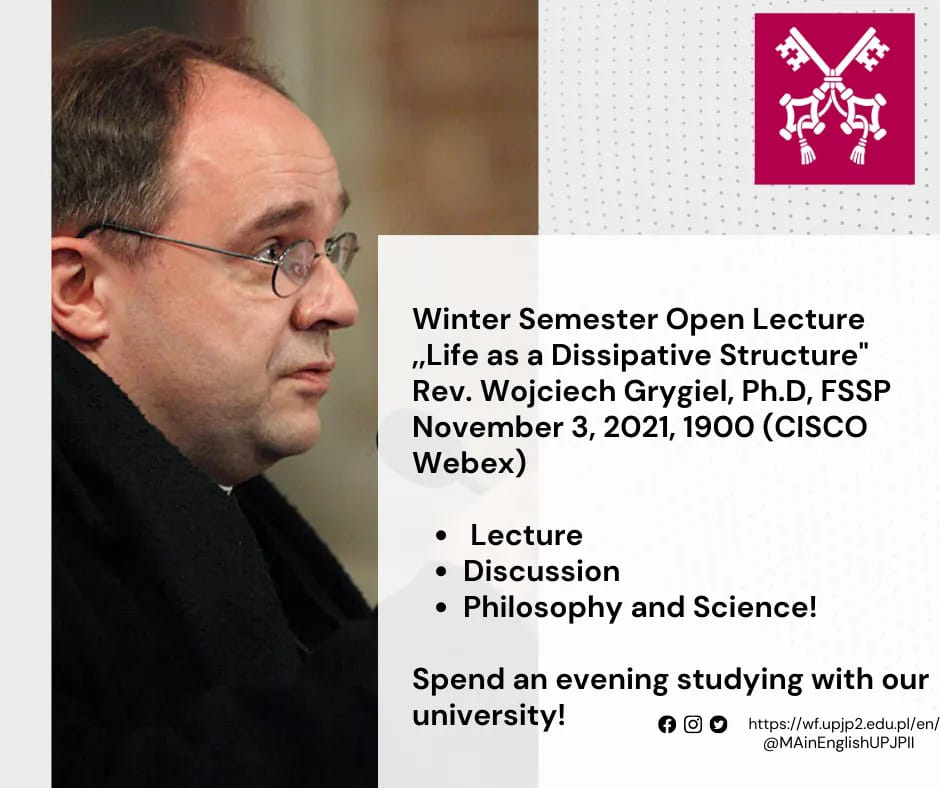News
"Life as a Dissipative Structure" - 3rd Nov 2021 [Open Lecture]
We are delighted to present the first lecture of this semester's "Open Lecture" series. Fr. Wojciech Grygiel, Ph.D., FSSP will discuss "Life as a Dissipative Structure" with us on November 3 at 1900, Warsaw time.
The meeting may be joined via the link: https://upjp2.webex.com/upjp2-en/j.php...
password: open_lecture

And what exactly will be talking about? We are glad you asked!
What is the origin of life on Earth? There is no doubt that living organisms exhibit a great degree of complexity, with the human brain being the most complicated entity nature has ever been able to bring forth. The contemporary theory of evolution that combines Darwinian natural selection with genetics explains how transitions between species can be accomplished by means of adaptations to randomly changing environments. However, it lacks a theoretical justification - why might these random adaptations eventually lead to an increase in complexity and the emergence of highly organized structures? This justification is provided by the thermodynamic "theory of systems", which is far from the equilibrium developed in the 1970’s. This is otherwise known as the "theory of dissipative", which explains that the emergence of the order of chaos is possible. This theory was developed in the 1970’s by a Belgian physical chemist (a Nobel laureate), Ilya Prigogine. Consequently, it is now well-understood why chance events are responsible for the creativity of nature. From the point of view of natural theology, the theory of dissipative systems shows why chance events do not contradict the rationality of creation and why they become an important component of the Divine plan of creation.



